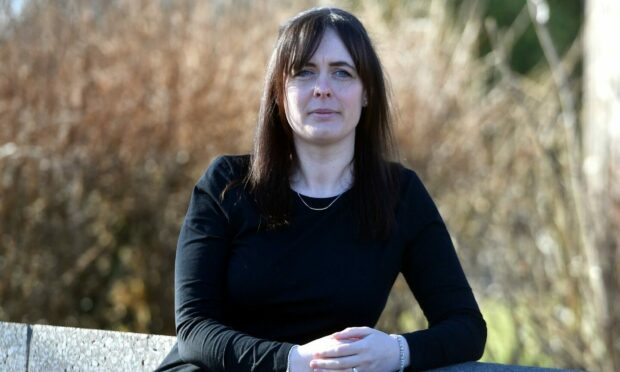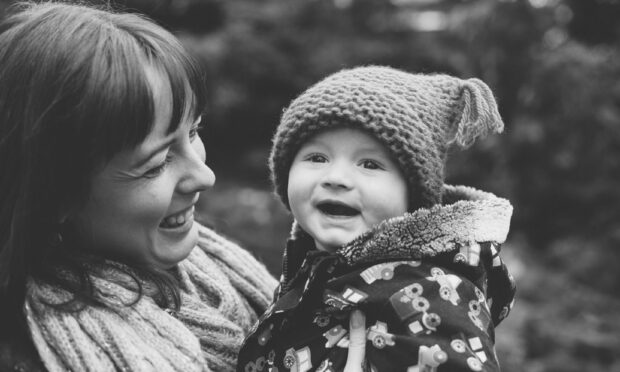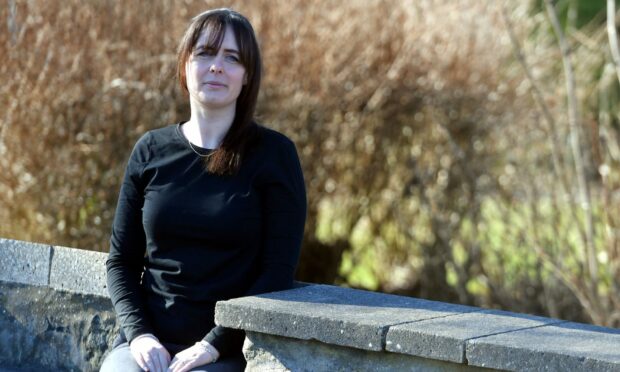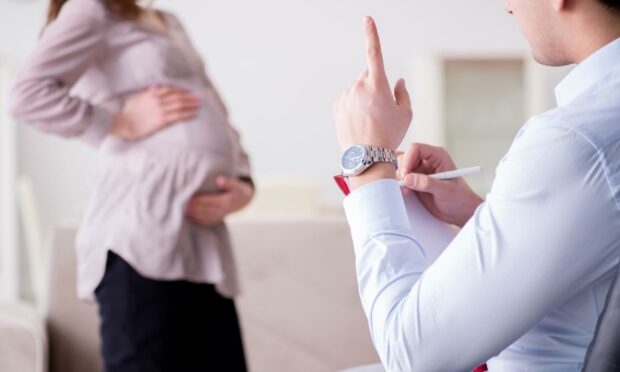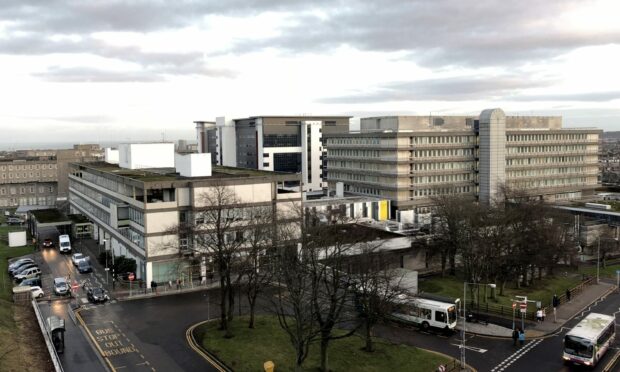A mum has credited a mother and baby unit with keeping her alive after she suffered severe mental ill health following the birth of her son.
Linsey Singers now wants a specialist in-patient facility beyond the limited central belt facilities which leave families at the mercy of a postcode lottery.
There are currently only 12 mother and baby unit beds in Scotland, all located within 40 minutes of each other in the central belt.
The units provide care for women with severe mental ill health, alongside their infant, with the Scottish Government consulting on the location of four new beds.
Linsey, who is from Inverurie, was admitted to the unit in Livingston in 2017, after experiencing a severe depressive episode following the birth of her son Jack, now five.
Her depression and anxiety manifested in intrusive thoughts which saw her imagining the worst possible situations happening.
Linsey was very unwell and received care from her GP and husband for around six months while on the waiting list for the NHS Grampian perinatal psychiatrist.
But when her mental ill deteriorated further she was admitted – with Jack – to the specialist in-patient unit in Livingston where she was treated for two months.
Despite receiving high-quality care in the unit, she had to leave behind her husband Paul and friends and family in the north-east just to access the right treatment.
Recounting her experience, the 34-year-old said: “I had always thought that if you get ill that you would get the support you needed.
“I didn’t think for a second it would mean that with a brand new baby I would have to leave my husband, my home and my friends and family and go and be by myself in the central belt.
“I was on maternity leave so money was tight. Statutory maternity pay doesn’t go very far so my husband was having to work Monday to Friday and then travel down to see Jack and I on a Friday evening.
“He then had to leave a few hours later and travel to stay overnight with family in Perth and then drive back to the mother and baby unit the next day and up the road again.
I just had always thought that if you get ill that you would get the support you needed.
“He was only able to see us once a week. Family and friends couldn’t visit because it’s about a five-hour round trip, 300 and odd miles.
“In fuel alone, it cost us over £800 just for him to visit, at a time when our household income was significantly less.
“At that time there was no family fund so no opportunity for us to recoup any of the mileage costs.
“We were just very lucky we were in a position that Paul could afford the fuel to visit us because a lot of families aren’t.”
‘Very long, very lonely days’
Linsey says these were “very long, very lonely days” as she watched other mums on her ward receive daily visits from their partners and children.
She said: “It was really hard because there’s a maximum of six mums in the ward at any time so I was the only one from Grampian during my stay.
“So every evening when their partners finished work, the mums would be having dinner together with their partners in their room and dad would be bathing baby or giving baby a bottle and in the evenings the mums were sitting with the partners in the family room watching a movie together.
“Whereas I was completely on my own so I didn’t get that time with my husband and my husband missed out and my son missed out on a lot of their time together.
“He wasn’t getting to give him a bath at night, he wasn’t able to give him a bottle. Jack did his first five steps towards a nursery nurse in the unit because my husband couldn’t be there.”
The mum-of-one was discharged when Jack turned one as the mother and baby unit only supports mums until their baby reaches this age.
But Linsey faced another uphill battle as she was still unwell and trying to secure a comprehensive package of support on her return to the north-east.
This was eventually settled by receiving support from general adult mental health.
‘We want the beds in Grampian’
Linsey says she “doesn’t think she would be here” if she had not had the excellent care she received at the mother and baby unit.
The mum-of-one helped co-found charity Let’s All Talk North East Mums (Latnem) in 2020, after her experiences battling with her mental health.
The group provides free peer support for mums in the north-east, holding weekly groups, zoom meetings, online chats and special events.
Now, Latnem is leading calls for the Scottish Government to locate the four new mother and baby unit beds in the north-east.
The mind boggles at how it’s supposed to be fair.”
Gill Skene, chair of mental healthy charity Latnem
The charity has supported mums who have been unable to take up beds they have been offered in a mother and baby unit due to the upfront costs associated with transport.
Some have even put off having another child or have chosen not to have any more due to difficulties accessing the appropriate mental health support.
Gill Skene, chair of Latnem, said: “We want the beds in Grampian. It’s not fair where they are located and there are so many mums who are suffering as a result of geographic discrimination and the resulting inequalities.
“Mums who are in an area where there is an mother and baby unit can have visits from friends, family, their wider social network.
“It’s not until you’re in the position, or your daughter is in that position, or your niece, or your wife that you actually find out about this.
“Most people think they would get care and would be able to keep their baby with them in Aberdeenshire.
“They’re shocked when you say ‘no you would have to go to Glasgow or Livingston’.
“The mind boggles at how it’s supposed to be fair.”
NHS Grampian to take part in consultation
An NHS Grampian spokeswoman said the health board is “aware of the current consultation” on increasing mother and baby unit capacity.
She added: “We will be making a submission to it, and would encourage everyone with an interest in this topic to visit the Scottish Government website and take part in the consultation before it closes on May 31, 2022.”
The health board launches its community perinatal mental health team on Tuesday, which will provide a specialist service for women aged 18 and over, along with their families, across the north-east.
Meanwhile, there is due to be a debate in the Scottish Parliament on Tuesday afternoon on perinatal mental health.
A Scottish Government spokesman said: “We are currently consulting on the best way to increase mother and baby unit capacity across Scotland.
“This consultation will inform the development of an options appraisal considering options such as expanding one or both of the existing units (sited in NHS Lothian and NHS Greater Glasgow and Clyde), or the creation of a new third unit in one of the mainland north of Scotland health boards.
“The options appraisal will evaluate options for increasing mother and baby unit capacity on the basis of equity of access, cost, safety and sustainability of the service.”
If you believe you, or someone close to you, is suffering from severe perinatal mental health, contact your GP immediately or NHS 24 out of hours on 111.
You can also reach out for mental health support and guidance via Latnem on Facebook, or through their website at www.latnem.org
To take part in the Scottish Government’s consultation to increase Mother and Baby unit (MBU) capacity, visit here.
